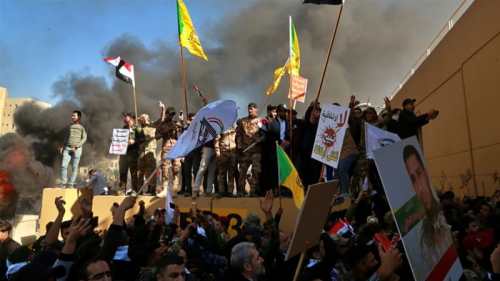
Burnt trees are seen in Mallacoota on January 15, 2020 , Australia. The Princes Highway between Mallacoota and Orbost remains closed to public due to the risk of falling trees following the devastating bushfires that have swept through East Gippsland in recent weeks.
Luis Ascui | Getty Images
“The kings of the Gentiles exercise lordship over them, and those who exercise authority over them are called ‘benefactors.’ “
In the event you have a life to live and don’t have hours of free time every day to monitor the latest big plans the master-of-the-universe-types have for the rest of us serfs, peasants, and minions, you may be surprised to hear that the great high holy week of globalism has arrived. It’s Davos time!
What’s that you say? You’ve never heard of Davos? Well, you just don’t know what you’re missing. Davos is a town in Switzerland that once a year plays host to the World Economic Forum (WEF), the exclusive annual January gathering of the world’s great and good where they discuss weighty and important topics that you and I can’t understand and make big plans for how to impose their vision of the future on us.
The Corporate Line
I admit, I haven’t paid much attention to the run up to this year’s gathering. What tipped me off this time around, though, was all the climate change hype that kept showing up on CNBC, a financial channel I follow regularly.
For example, one recent headline on CNBC read “Capitalism ‘will fundamentally be in jeopardy’ if business does not act on climate change, Mircosoft CEO Satya Nadella says.”
This is a new take on climate change. Generally, what you hear from the mainstream media (MSM) is that it’s capitalism itself that is causing climate change and that it needs to be ended in favor of the sort of Green New Deal Marxist claptrap one hears from the likes various American politicians whose names I won’t mention in this space.
But here’s a businessman – the CEO of Microsoft no less! – announcing to the world that climate change is an existential threat to capitalism. Adapt or die, seems to be is message.
The article begins by announcing, “The science is clear that environmental sustainability must factor in a corporation’s growth plans, or the capitalist and economic system the U.S. enjoys ‘will fundamentally be in jeopardy.’ “ Now the piece doesn’t say exactly what “science” is “clear” to the point that it requires the radical re-evaluation of the purpose of a corporation as is proposed in this article, but one supposes Nadella is referring to the report put out by the WEF just in time for the group’s 2020 meeting this week in Davos.
It probably doesn’t come as a surprise to you, but about halfway into the article one comes across the obligatory “Orange Man Bad” reference. You see, unlike righteous CEO’s such as Nadella who care about the environment, Orange Man, “has tapped the brakes on a number of the country’s climate initiatives, such as pulling the U.S. out of the multilateral 2017 Paris Agreement.”
After plowing through a lot of corporate-speak virtue signaling, about “sustainability” and Microsoft’s new “Climate Innovation Fund” we read,
Microsoft’s CFO Amy Hood, appearing alongside Nadella later in the interview, said the eco-friendly program along with the company’s $750 million commitment to affordable housing in Seattle, Washington “are good returns on investments.”
Reflecting on this statement, author Tyler Clifford notes, “She stopped short of projecting what the return on investment in these initiatives would be, but explained that it will be measured and the company will hold itself accountable.”
So the Microsoft CFO won’t offer a projection of the return on investment of these “eco-friendly” programs? Remarkable. Her silence on this subject should be a big clue. Not only will the “eco-friendly” initiatives not be profitable, they almost certainly will destroy shareholder value.
Now one can feel a certain amount of sympathy for Nadella. He’s the high-profile CEO of a hugely successful company. As such, he’s expected to talk the talk and walk the walk of the master of the universe types whose good graces he must court. My guess, he probably doesn’t believe all the sustainability nonsense he talks about. It’s just the cost of doing business.
(more…)
Read Full Post »




